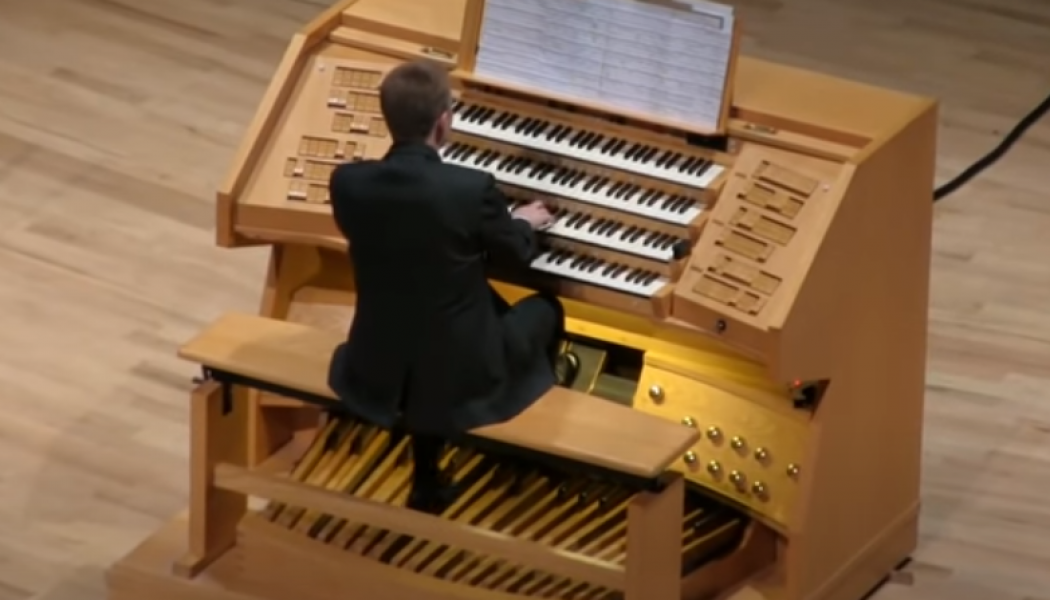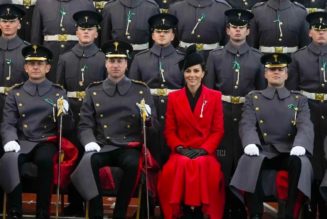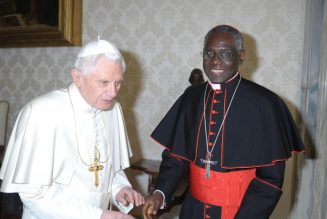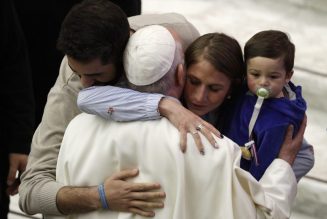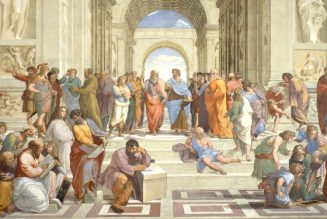
In the first video below there is a scene, not exceedingly rare today, of a piano placed in an airport or shopping mall. A person approaches the piano and begins to play, meekly at first, but then displaying virtuoso talent. Soon a crowd assembles in appreciation of the remarkable gift before them, both the man and the music.
Sadly, I have not noticed a similar appreciation expressed by Catholics at Sunday Mass, weddings, or other similar moments when virtuosity was displayed by the church organist. For example, a few years ago I was at a large Mass of the faithful at a large church in Washington, D.C. where very talented organists are known to play. For the postlude, the organist played the Symphonia from Cantata 29 by J.S. Bach, a phenomenal and difficult piece (see the second video also below). Only two of us out of the entire congregation showed enough appreciation to stay and listen, lifting our hearts to this piece that so glorifies God, and seeing His grace shining through mortal talent and the king of instruments, the pipe organ. The rest of the congregation began chattering and moving toward the exits. I wondered if they had any idea of the glory and the gifts that were unfolding all about them. It seemed that they did not. Rather, they appeared to treat it as background noise that forced them to them talk to one another even louder. Once the piece ended, the two of us approached the organ area and thanked the organist profusely. I lamented that so few seemed to appreciate what he had just done. He shrugged, and with a philosophical attitude said simply, “I played this for God.” Yes, Amen. The whole liturgy is for God.
To some extent, though, we Catholics have lost our way when it comes to the conclusion of Mass. Whether there is a recessional hymn or not, as the clergy and servers depart, one is invited to stay for a few moments to personally thank the Lord for the gift that has unfolded. Sometimes this is done in silence for a moment or two. Some organists, especially those who are particularly gifted, choose to assist this act of worthy and joyful thanks with a postlude. Either way, a brief time of even just a few moments is commendable for the faithful. To be sure, some people have valid reasons to leave at once, but most can stay just a bit and linger in the afterglow of the inestimable gift of the Sacred Liturgy. Instead, most parishes erupt into a cafeteria-like setting, in which loud greetings and conversations dominate. In the past, such activities took place in the vestibule or just outside the church. Fellowship is commendable and to be encouraged, but so is the concept of a sacred place reserved for prayer and praise of God. Currently things are out of balance.
Many pastors seek to admonish the faithful to respectful silence within the church interior, but their request is usually forgotten within weeks. The prevailing culture of informality is pervasive. There is also something of a generational quality to it. Surprisingly, I have found that masses predominantly attended by young adults feature silence in the church prior to and after the Mass. Paradoxically, it is the elder generation, who were raised with the notion that is a “sin” to talk in church, who have most set aside the idea of silence in church.
Returning to music for a moment, most great composers created preludes and postludes to be played at Masses and religious services. Bach composed dozens of them along with meditative pieces based on sacred hymns and themes. As one entered and left the church, one heard the music of Heaven, signaling that the ordinary world was left outside the doors of the church. Most organists I know don’t even try to play preludes anymore, especially at weddings, where so many enter the church as if it were merely a reception center sans bar and hors d’oeuvres. Churches used to resound with the sounds of Jesu Joy and Ave Maria as people assembled quietly and respectfully, recognizing that they were in a sacred place. Many of the guests at weddings are unchurched and simply have not learned the proper behavior; I do not believe they are being intentionally disrespectful. It is more the result of a secular culture that almost never engages in formalities anymore. We seldom dress up, endure a formal silence, or even understand its meaning.
Recently, preludes and postludes (usually played by organists) seem to be making a bit of a comeback. They help to remind the faithful that a sacred place is being entered or a sacred event is being ended with joy and solemnity. They are like bookends or boundaries. If you’re blessed to have a good or even a decent organist, encourage him or her to play preludes and postludes. Ask the clergy and musical leaders to teach the congregation about their significance. They are not merely background music to chat over; they are a summons to what is heavenly and edifying.
[embedded content]
[embedded content]
Join Our Telegram Group : Salvation & Prosperity
